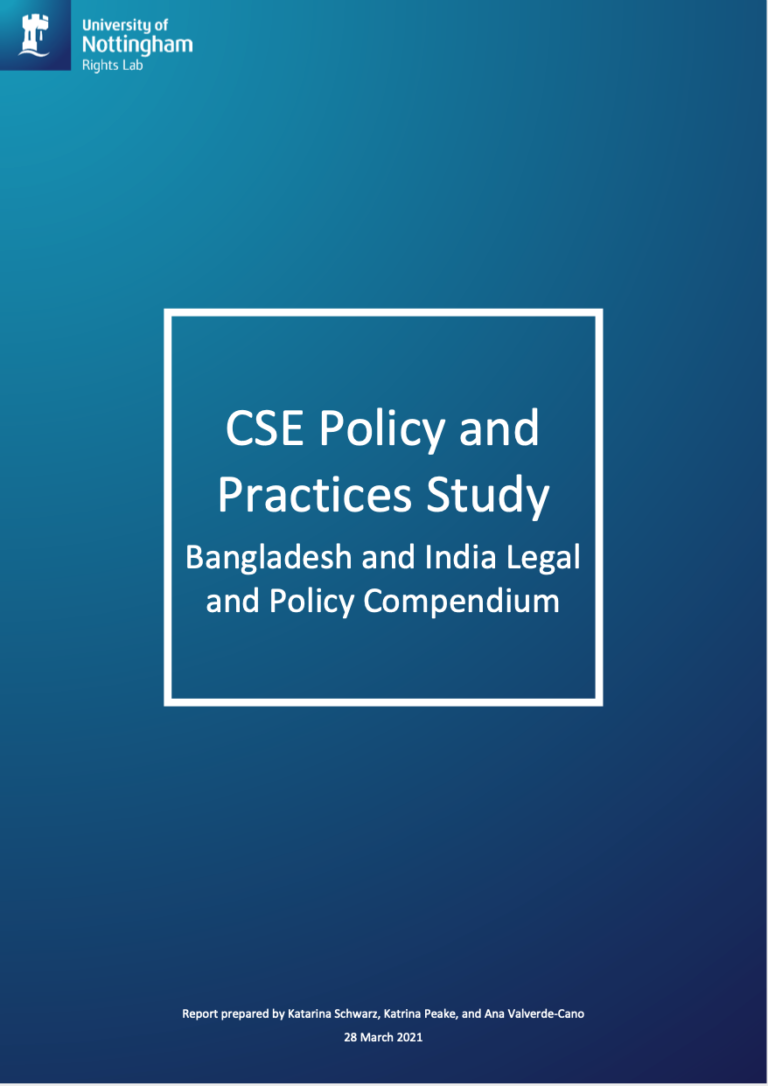The compendium provides an overview of legislative and policy frameworks on rehabilitation and reintegration in India and Bangladesh for CSE practitioners and stakeholders working to support justice, protection, and trauma-informed minimum standards of care in restoration and reintegration of survivors. The review highlights significant efforts that both countries have taken towards effectively combating CSE and supporting victims. The success of these frameworks is determined by the implementation and enforcement of policies. Synthesizing local knowledge and expertise, the Rights Lab has indicated the following recommendations to close implementation gaps between policy and practice: Investigations of CSE cases must be timely, sensitive, and victim-centered, successful recovery and reintegration require ongoing long-term support, greater support is needed to ensure that survivors can access existing compensation frameworks, ensure the inclusion of adult male victims who are often overlooked by current policies, as governments rely on international and non-governmental organizations to ensure the provision of sustainable comprehensive care, they should provide adequate funding and standardized monitoring and oversight, governments should provide support that includes foreign nationals, and with greater attention to sexuality, gender identity, ethnicity, and socio-economic status of victims.

